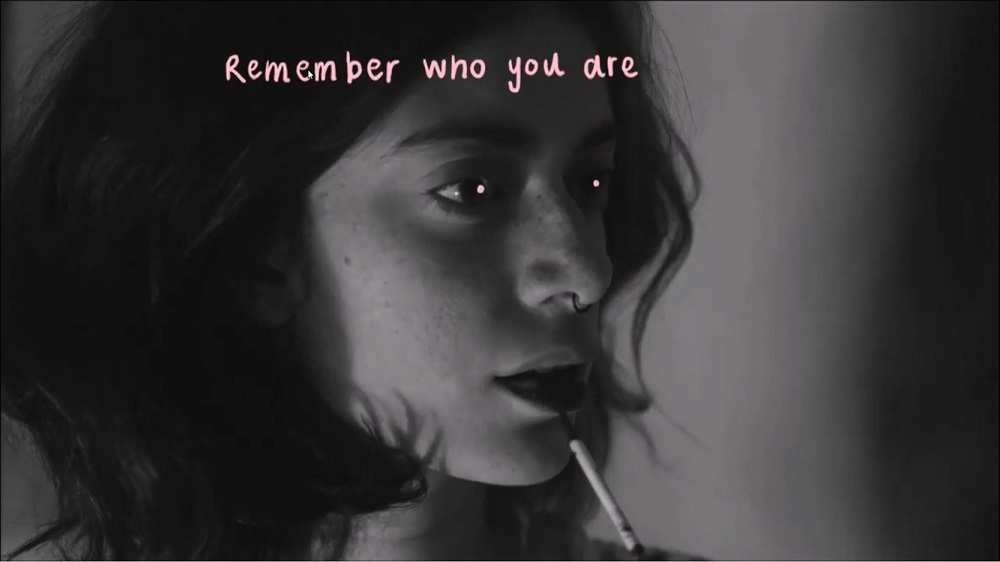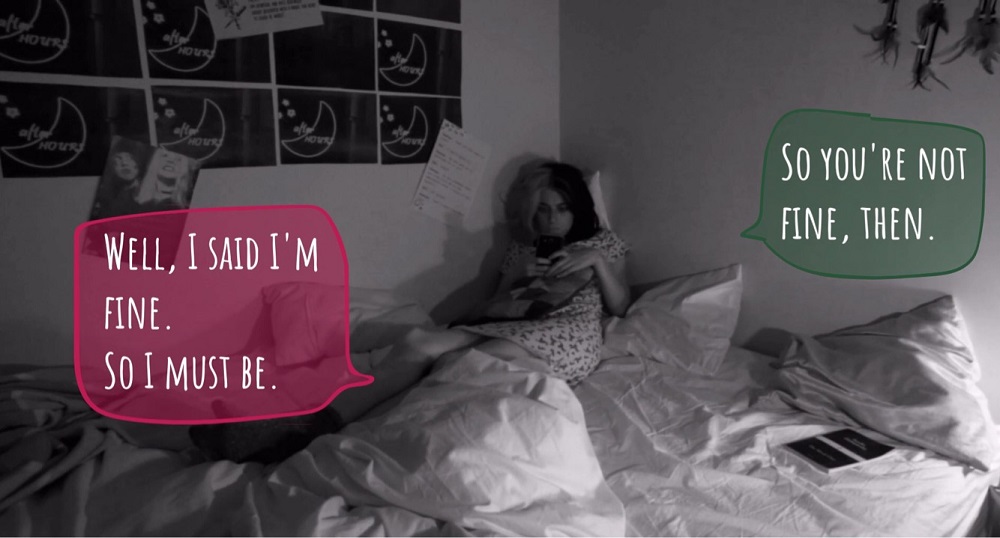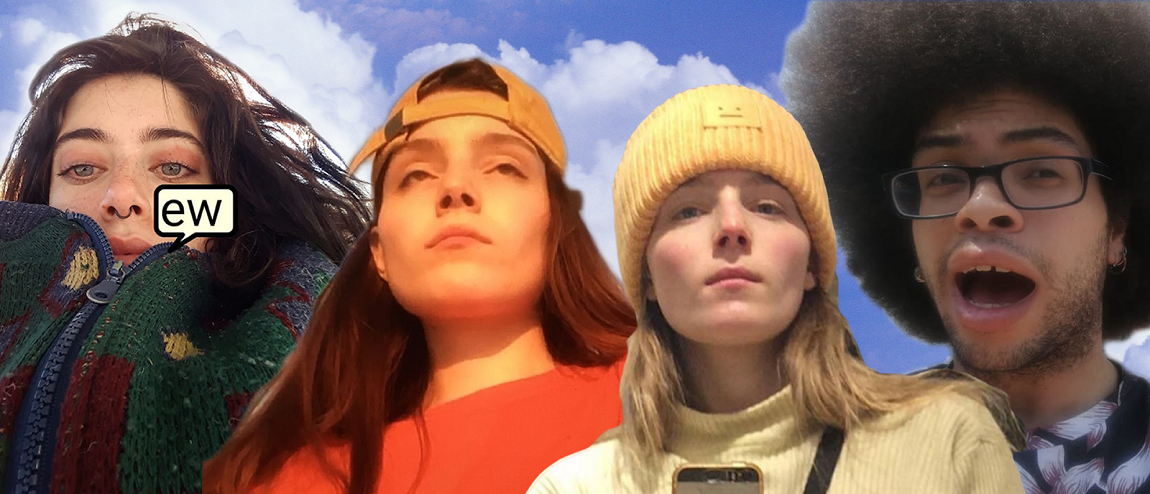After Hours is a video game that deals with gender-based violence and Borderline Personality Disorder. It was created by Bahiyya Khan, a 23-year-old Experimental Storytelling Masters student at the University of Witwatersrand. She got into video game developing after doing her undergraduate degree in game designing. The Daily Vox team spoke to her about her work.
After discovering that game design was a degree in Grade 11, Khan decided to pursue a degree in that university.
I thought it was pretty cool because it combined things I was interested in like science and storytelling. Also coming from Lens (Lenasia) which has very set narratives that everyone follows which everyone goes into like accounting and teaching. That bored me to death and I could not imagine doing that at all. I was fighting with my mom a lot because she wanted me to go into accounting and I was like hell no. If I didn’t get accepted into game design I would have started a band or wrote. But then I got accepted thank God.

After Hours is the game that Khan developed as part of her degree.
I made the game for my honours project last year. The way the honours worked was you had to make a game for the entire year on top of all of your other subjects […] I had never worked on a game for so long so I wanted to make it on something that I would be constantly interested in. And if I’m dedicating a year of my life to making a game it has to be something important. Last year, there was a spike in women and children abuse in South Africa that it actually got termed femicide. So during all of that I was just losing my mind and I couldn’t deal with seeing all of the stories of rape and child abuse and it was affecting me so much because our number one fear when anything happens is always I don’t want to get raped. When you walking alone, someone catcalls you all of those things, that’s the first thing that comes to mind. For me, a lot of my friends have been in those situations so I thought it was a really important issue and I wanted to shed light on it.
The thing with Borderline Personality Disorder (BPD) which is the mental illness explored in the game – it often results from an unstable childhood. I think the statistics are 75% of BPD people have been molested in their childhood or some point in their lives. I just wanted to explore that correlation. And also to show how you shouldn’t demonise mentally ill people and they are actual people with interests in poetry, music which I show in the game. They are struggling themselves on top of having a stigma about them. So that’s why I decided to make the game.
I felt like in video games – generally a lot of the games – that I play I found the content quite problematic. They’d always be showing brown people as terrorists or people of colour as demons and it was super violent. So I wanted to do a women of colour story and not demonise her.
The way that I got the team together was I already had the concept in my mind and that I wanted to make the entire video game out of film. But I had never shot a film in my life so I knew about Claire Meekel (Cinematography, editing & animations) from Wits. I had seen some of her work on YouTube and I thought she was really talented so I contacted her and said would you be interested in working on this video game with me. She was very in support of the content and the message that the game was trying to promote so that’s how we started working on it. And then the soundtrack that plays in the game was composed by Abi. She composed the song and I said it would fit really well with the game. I was spending time at their house so Abi knew everything about the game already. So she made the song and I was like it’s perfect. And then we were struggling to find a programmer because I had never programmed film before so I didn’t know at all how to do that. Tim Flusk, the person who programmed the game, I knew them from high school. I’m good friends with their girlfriend as well. She said why don’t you ask Tim. I asked them and they came in and pretty much saved the day.

The gaming industry can be quite toxic at times. Khan’s game aims to change that in a small way.
My target audience already know what the content is about I don’t think it will [attract] very much white bro-y type of guys. But sometimes they happen to play the game because they don’t know what it’s about. Afterwards it’s a very uncomfortable moment for them. I showcased my game in New York two weeks ago and there were these middle-aged white guys playing it. They didn’t know how to debunk what they had experienced. They couldn’t speak. It was very weird for me. I don’t know how I can change everybody’s mind. I don’t think it’s possible but if it can start promoting ideas which they hadn’t thought about previously. I think that will be really helpful. In some of my previous games I have these two girls that are gay and it’s just supernormal so stuff. It’s not like a thing where you sort of fetishise it. I just want to make games about normal people. Normal everyday people and not make it like a spectacle.
Especially being a Muslim woman of colour representation is extremely important to me. As marginalised people we know how awful and skewed representation practises can be so it’s super important to me to show people in a realistic a way as possible. That said it also feels like a massive burden because you don’t want to upset anyone within your community by showing something inaccurately. I think it’s quite unfair that as marginalised creators we have this burden on us. But no one else is going to do it for us so we have to do it.
Last year the game that I made for campus was the beta version of the game. I actually just got picked up by the publisher Humble Bundle. They want to publish the game. So we are working on the alpha version.

I think the first thing that you have to do is look after yourself like physically and mentally. Make sure to try and get as best an education as you can get. I went to a pretty bad high school. I didn’t have a proper science teacher and my mom made so many sacrifices in order for me to do well in matric. So I think you have to value that first and foremost. Be thirsty for a better life for yourself. It’s unfair that so often people of colour have to go through the most to just survive not even live. So I think you need to invest in yourself and look after yourself in that space. Try to be as mentally healthy as you can be. Also to just have a wide range of interests because I feel like this weird thing in games where people are only interested in video games, anime and comics and you start producing the same games as other people. So be interested in other things whether you going to poetry shows or you’re interested in science. I think it’s really important to cultivate your interest in other things and fields. To live in your world and notice things. Don’t think moments in your life is insignificant because you always have a story to tell. It might be boring to you but it might be something other people haven’t heard of before. Don’t sort of sell yourself short because you are a human being and you have inherent value and that’s important to remember.
Images provided by Bahiyya.
The interview has been edited for clarity and brevity.









